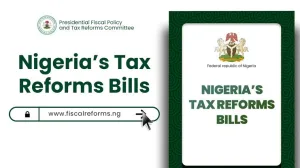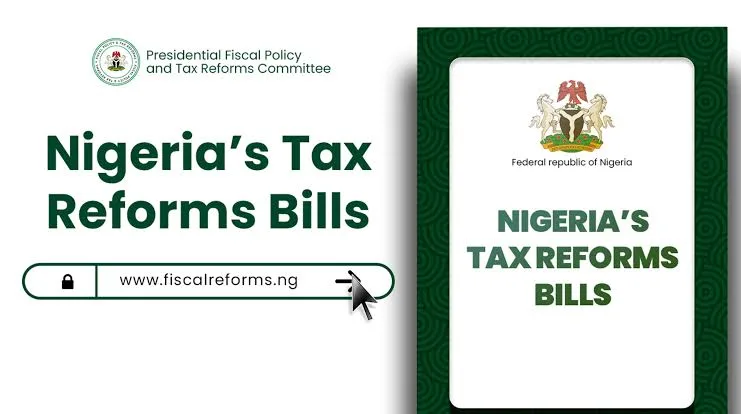The proposed Tax Reform Bills scaled second reading on the Senate floor on Thursday, despite strong reservations from some lawmakers.
Presenting the lead debate on the Executive Bill before opening the floor to his colleagues, Senate Leader, Michael Opeyemi Bamidele, described the proposed legislation as “a significant move to overhaul the country’s tax system.”
He said, “These bills aim to simplify the tax landscape, reduce the burden on small businesses, and streamline tax collection.”
The Senate Leader elaborated on the benefits of the proposed bills, which include four main components.
He stated: “In broad terms, the four bills seek to ensure uniformity in tax revenue administration in Nigeria, in line with constitutional provisions; eliminate double taxation across the country; use taxation as a tool to encourage private sector investment in critical industries; and boost disposable incomes through targeted tax exemptions as outlined in the various bills.”
Regarding tax exemptions, Senator Bamidele highlighted: “There is a proposal to exempt individuals earning no more than the minimum wage from Pay As You Earn (PAYE) deductions, while small businesses with an annual turnover of ₦50 million or less will also be exempt from paying taxes.
“Similarly, there is a proposed significant reduction in corporate income tax from the current 30% to 25% by 2026. Additionally, to address double taxation and the multiplicity of levies, multiple taxes previously paid by companies, such as the 2.5% education tax and 0.25% NASENI tax, have been harmonized into a single development levy of 2%. By 2030, this levy will fund the newly established student loan scheme, benefiting many Nigerian youths.”
Senator Bamidele also revealed an innovation in the proposed legislation aimed at allocating more Value Added Tax (VAT) revenue to states.
“Unlike the current tax regime, where the Federal Government takes the lion’s share of VAT revenues, the new sharing formula proposes increasing the states’ share from the current 15% to 55%, while the Federal Government’s share will drop to 10%. However, the Local Governments’ share will remain unchanged.
Furthermore, essential items such as food, medical services, pharmaceuticals, education fees, and electricity will continue to be exempt from VAT.”
He also noted efforts to consolidate core tax statutes and related legislation to simplify the administration of income taxes and levies across the federation. Senator Bamidele urged his colleagues to pass the Executive Bill promptly, stating: “Mr. President, Distinguished Colleagues, these bills represent a necessary legislative intervention to support ongoing fiscal and tax reforms, which are crucial for repositioning the Nigerian economy for growth and productivity. I urge you all to support the Second Reading of this Bill.”
Former Bayelsa State Glgovernor and senator representing Bayelsa West, Seriake Dickson, supported the tax reforms but acknowledged a lack of stakeholder consultation.
“While the absence of sufficient consensus building and consultation is regrettable, it should not detract from the essence of the legislation. For example, the focus on derivation is commendable as it encourages states to boost productivity and revenue generation. This includes ensuring that PAYE taxes from oil workers are calculated and paid to the oil-producing states where these activities occur.”
However, Senator Ali Ndume of Borno South raised concerns about the timing of the proposed legislation, insufficient consultations, and the derivation principle. He argued that introducing derivation in VAT sharing would necessitate constitutional amendments.
“Mr. President, I have concerns with these bills. The timing is not ideal, and the issue of derivation requires constitutional amendments. I believe the bills should be withdrawn and reintroduced after thorough consultations with governors, the National Economic Council (NEC), and traditional rulers,” Ndume said.
In contrast, Senator Tahir Monguno argued that governors and traditional rulers could express their views during public hearings.
Following a voice vote, the bills secured their Second Reading. The Senate President then mandated the Senate Committee on Finance to review the bills and report back within six weeks.


